Ancient Israel
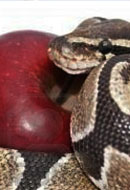 Sin, Sin, Sin
Sin, Sin, SinWednesday, August 29, 2012 by Lawrence Grossman | Jewish Ideas Daily » Daily Features
In the current Hebrew month of repentance, it’s hard not to notice that we live in a culture that takes sin far less seriously than it used to. The formula “mistakes were made” has largely replaced the admission of personal responsibility.
Wednesday, July 18, 2012 by Torah Talk with Michael Carasik | Jewish Ideas Daily » Weekly Portions
This week, the shocking truth about Kadesh-Barnea. (Click here for source sheet.) Download | Duration: 00:11:09Pinhas: Pact, Plot, Passion
Wednesday, July 11, 2012 by Torah Talk with Michael Carasik | Jewish Ideas Daily » Weekly Portions
Two strange words are used this week to describe what the Midianites did to the Israelites. We'll talk about what they are and why they are here. (Click here for source sheet.) Download | Duration: 00:10:38
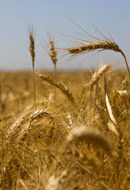 Shavuot: The Stopping Point
Shavuot: The Stopping PointFriday, May 25, 2012 by Michael Carasik | Jewish Ideas Daily » Daily Features
There is always something going on in the Jewish festival calendar. From the fast of the 10th of Tevet through Hanukkah right around to the next fast of the 10th of Tevet on December 23rd, it's hard to go more than four or five weeks in a row without finding some special day to be observed.
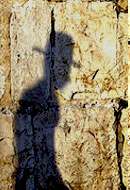 Either/Orthodoxy
Either/OrthodoxyTuesday, May 15, 2012 by Lawrence Grossman | Jewish Ideas Daily » Daily Features
Belying the regimented connotation of the word "orthodox," Orthodox Judaism is by far the most diverse stream of Judaism, encompassing such incompatible types as rationalists and mystics, West Bank settlers and peaceniks, college professors and obscurantists, feminists and male chauvinists.
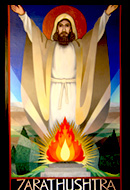 Our Zoroastrian Moment
Our Zoroastrian MomentMonday, May 7, 2012 by Shai Secunda | Jewish Ideas Daily » Daily Features
The great contemporary scholar of religion Jonathan Z. Smith once remarked that the omnipresent substructure of human thought lies in the human capacity to make comparisons. In ancient Sumer, scribes crafted intricate similes.
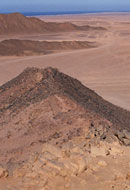 Were the Israelites Enslaved in Egypt?
Were the Israelites Enslaved in Egypt?Friday, April 6, 2012 by Michael Carasik | Jewish Ideas Daily » Daily Features
Did the exodus really take place? To many, this will seem like an absurd question. The book of Exodus has a dozen chapters explaining that it did. Yet recent decades have found at least some biblical scholars casting doubts on the historicity of this story.
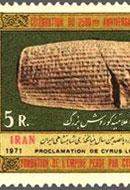 Cyrus, Ahmadinejad, and the Politics of Purim
Cyrus, Ahmadinejad, and the Politics of PurimWednesday, March 7, 2012 by Alex Joffe | Jewish Ideas Daily » Daily Features
At this week's pre-Purim meeting in Washington between President Obama and Prime Minister Netanyahu to discuss Iran's nuclear threat to Israel, Netanyahu gave Obama a present: the book (or m'gilah, scroll) of Esther, which tells how the Jewish heroine foiled Haman's plot to kill the Jews of ancient Persia.
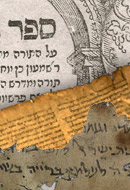 Material World
Material WorldTuesday, February 21, 2012 by Michael Carasik | Jewish Ideas Daily » Daily Features
When is a text not a text? When it is an object. When a Torah scroll is held up in the air so that congregants can view its columns of words, it is not being read. The words that the congregation chants are indeed found in the scroll, but in two different places.
 Jewish Ethics, from Ancient Bible to Modern Bus
Jewish Ethics, from Ancient Bible to Modern BusMonday, February 13, 2012 by Lawrence Grossman | Jewish Ideas Daily » Daily Features
The next time someone tells you that ethical behavior doesn't need a foundation in religious teaching, step onto an Israeli bus (it doesn't have to be the gender-segregated variety) or open a mass-circulation Israeli newspaper and see how religion puts Jewish ethics on steroids.
Editors' Picks
Still Blaming the Jews Richard Wolin, Chronicle of Higher Education. German Egyptologist Jan Assmann claims that Judaism disrupted the ancient Middle East by inventing "religious exclusivity"—and calls his theory "a historical analysis of anti-Semitism."
Myrtle, Date Palm, Willow, Citron Arthur Schaffer, Tradition. What do the "four species" of Sukkot signify? A botanist finds an agricultural interpretation that would have been readily available to an ancient Israelite farmer. (PDF, 1982)
Prehistoric Palestine , Israel Antiquities Authority. An archeological excavation at Ein Zippori in northern Israel has uncovered ornate luxury bowls from the Stone Age—testifying not only to settlement but also to trade.
Tales from Tiberias Aviva Bar-Am, Shmuel Bar-Am, Times of Israel. “Now,” said the rabbi, “Go home and tell your husband you spat in my face seven times!”
Joshua’s Fire Noah Wiener, Bible History Daily. The discovery of jars of scorched wheat at Tel Hazor dating from 3400 years ago may be evidence of the Israelites’ destruction of the Canaanite city recounted in the book of Joshua.
Flow of History Harold Brodsky, H-Net. While the Jordan River was agriculturally useless until the modern day, it has been politically and spiritually significant for millennia.
The Negev's “First People”? Havatzelet Yahel, Ruth Kark, Seth J. Frantzman, Middle East Quarterly. The Bedouin may be a poor and marginal sector of Israeli society, but this does not transform them into an indigenous nation.
What Have the Romans Ever Done for Us? AlphaGalileo Foundation. The discovery of a Hebrew inscription from the fourth century in Portugal is not only the earliest evidence of Jews in Iberia, but also testifies to a close relationship between Jews and Romans.
Amid the Alien Corn Jewish Ideas Daily. In one stunning declaration, the young Ruth shattered what had previously been an impermeable barrier of Israelite law, reshaping the law and Jewish history at once.
Witnesses to the Bible? Matti Friedman, Times of Israel. Two rare 3,000-year-old models of ancient shrines are among the artifacts claimed by an Israeli archeologist as evidence for the historical veracity of the Bible.

